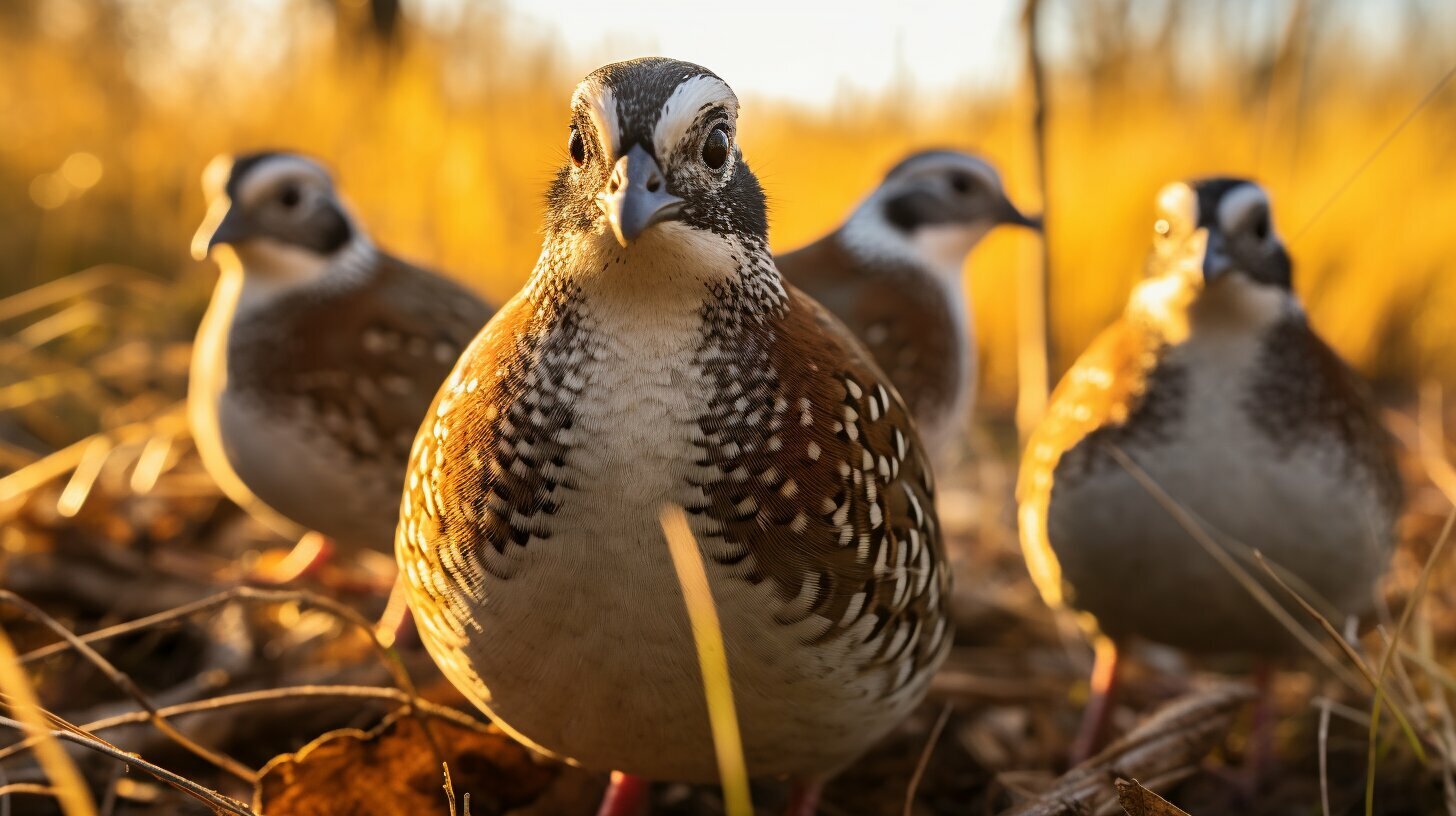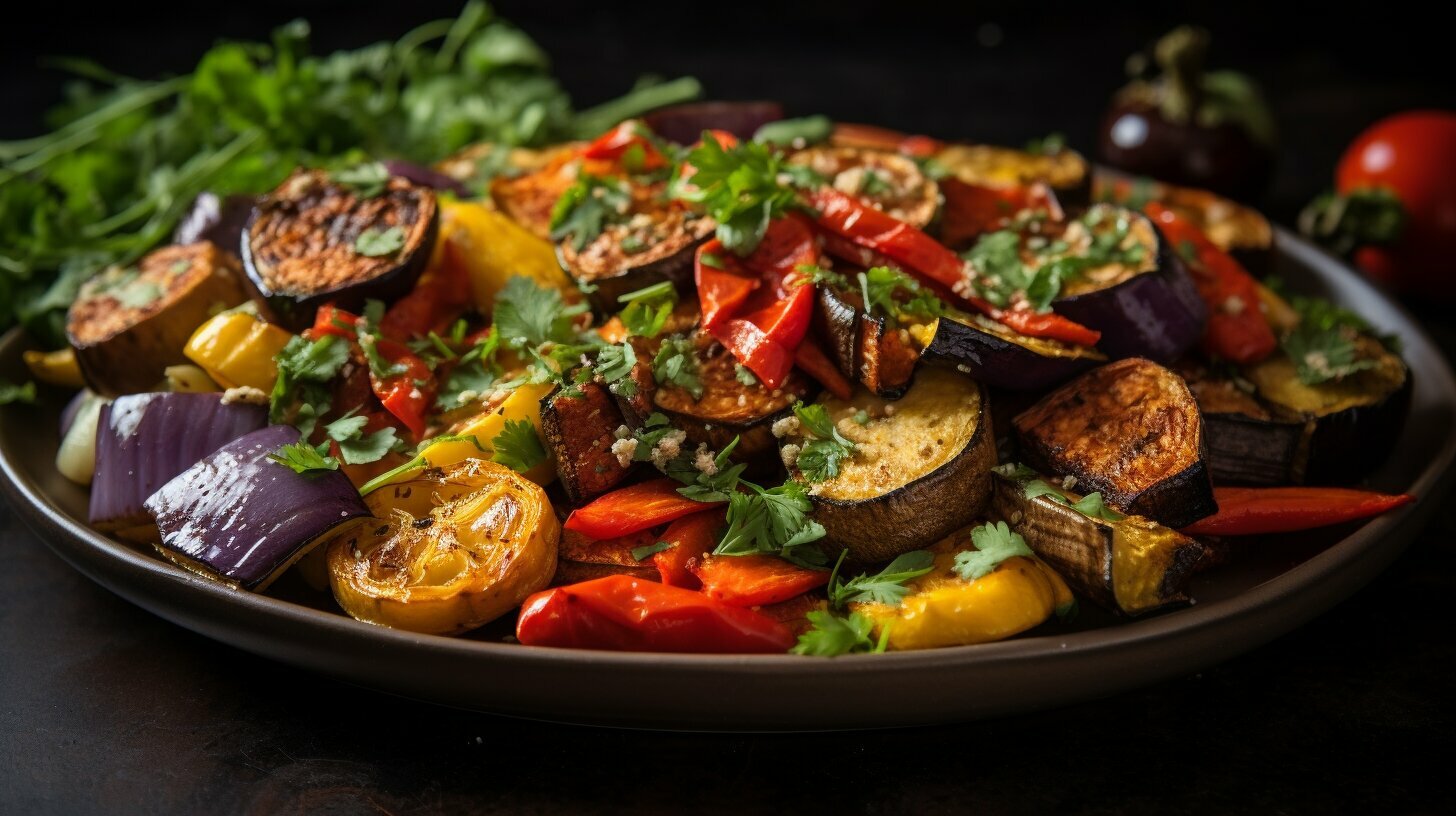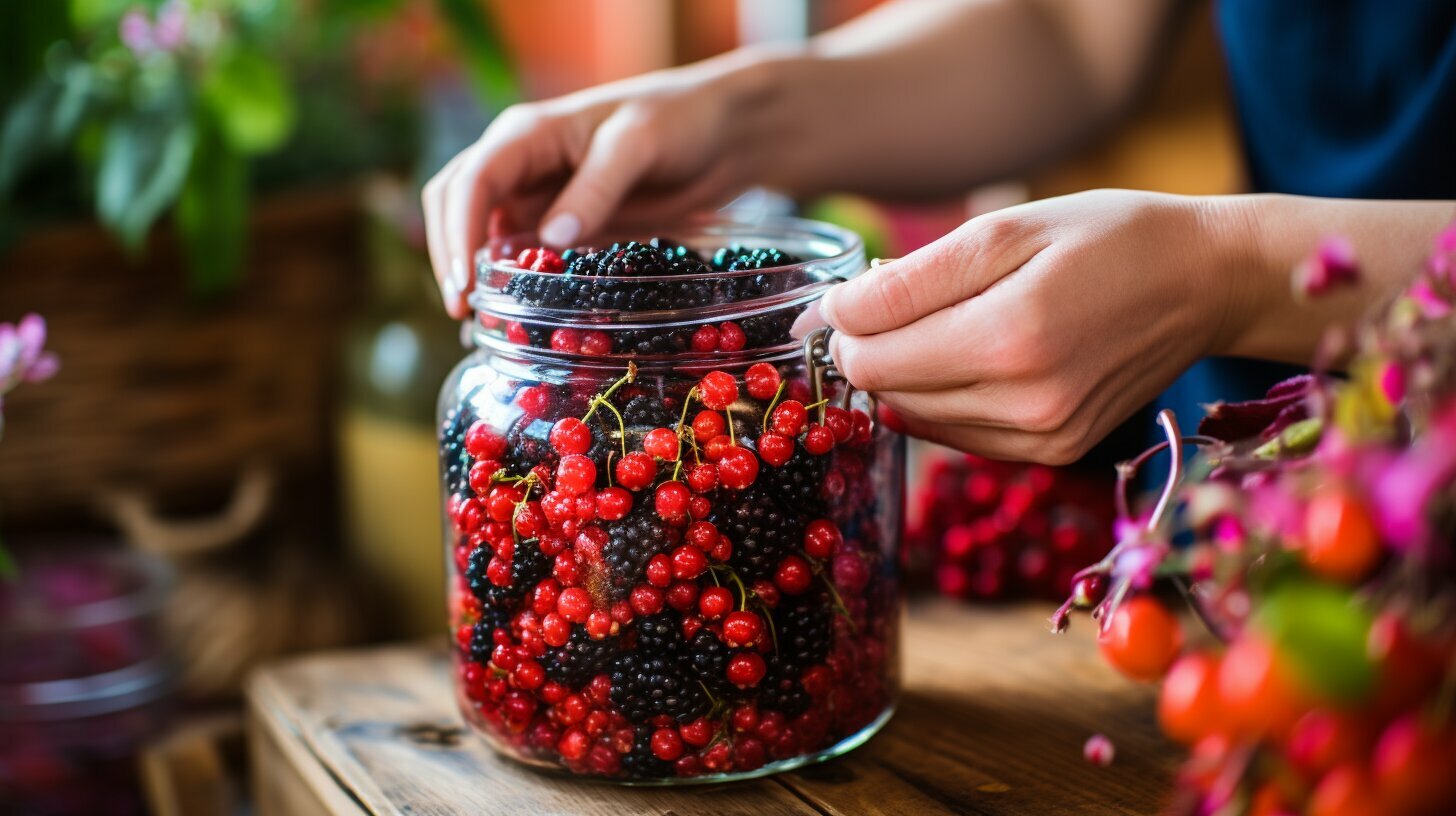If you’re looking for a fun and low-maintenance way to raise poultry in your backyard, why not consider quail? These small, bird-like creatures are fascinating to watch and can even be kept as pets. Plus, they require far less space than chickens and are much quieter, making them a great option for urban or suburban settings.
Caring for backyard quail is relatively easy and straightforward. With a little bit of effort and the right setup, you can enjoy all the benefits of raising poultry without the hassle and expense of keeping chickens.
Key Takeaways:
- Backyard quail are a great alternative to chickens, requiring less space and being much quieter.
- Caring for quail is straightforward and requires less effort and expense compared to chickens.
- Quail care includes setting up an appropriate coop and ensuring proper nutrition and disease management.
Getting Started with Backyard Quail
So, you’ve decided to raise quail in your backyard. Before you get started, there are a few things you need to consider in terms of backyard quail husbandry, backyard quail coop, and backyard quail housing.
Backyard Quail Husbandry
Quail require special care and attention in order to thrive. They are social animals and should be kept in flocks of at least 3-5 birds. You will need to provide fresh water and food, as well as clean your coop and nest boxes regularly.
Disclosure: When you buy through links on our site, we may earn an affiliate commission.
Backyard Quail Coop
Your backyard quail coop should be sturdy and predator-proof. Quail are vulnerable to predators such as raccoons, foxes, and even domestic cats and dogs. Your coop should also provide adequate ventilation and protection from the elements.
Tip: Use hardware cloth with small holes to prevent predators from accessing your quail.
Backyard Quail Housing
Quail require a minimum of 1 square foot of space per bird in their housing area. They also need a separate area for nesting boxes. You can use straw, pine shavings, or other suitable nesting materials in your boxes to keep your quail comfortable.
Now that you know the essentials of backyard quail husbandry, backyard quail coop, and backyard quail housing, you’re ready to get started with your quail flock. Keep in mind that these are just the basics and there is much more to learn about raising quail. But with a little care and attention, you’ll soon be enjoying fresh quail eggs and the company of your feathered friends.
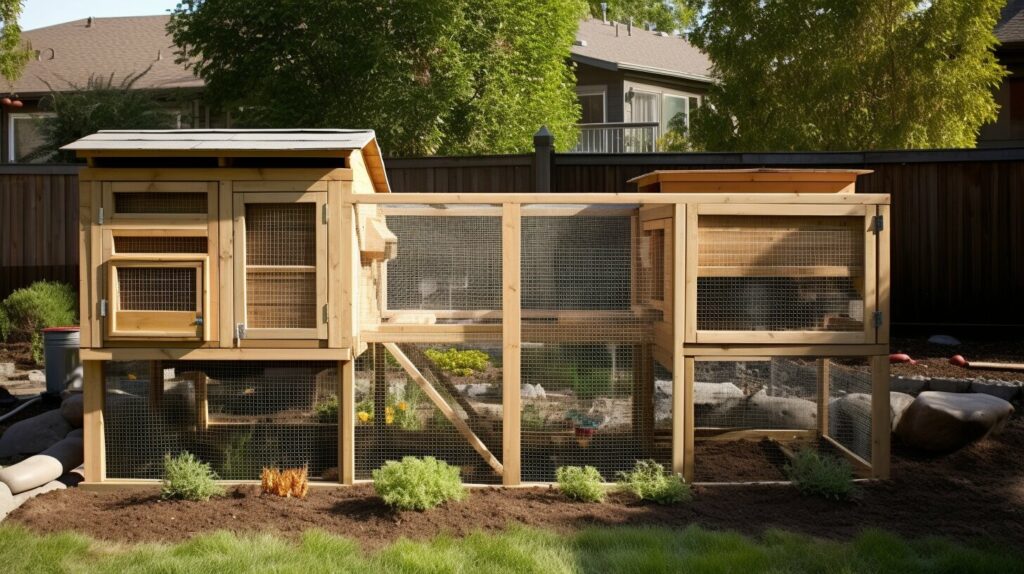
Breeding and Incubating Quail Eggs
If you’re interested in breeding backyard quail, there are a few things to keep in mind to ensure a successful hatch. Selecting healthy breeding stock is crucial to producing strong, vigorous offspring. Look for birds that are active, alert, and free from any signs of disease or deformities.
Quail eggs take around 17-18 days to hatch and require consistent temperature and humidity levels throughout the incubation period. You can purchase an incubator or create a homemade version using a styrofoam cooler and a heat lamp.
Once your quail chicks have hatched, it’s important to provide them with adequate nutrition and a safe, warm environment. Feed your chicks a high-quality starter feed and offer plenty of water. You can also add a small amount of grit to their feed to help aid in digestion.
It’s important to keep a close eye on your quail chicks during the first few weeks of life, as they are particularly vulnerable to predators and disease. Be sure to provide adequate predator protection and maintain a clean living environment to minimize the risk of illness.
With proper care and attention, breeding backyard quail can be a rewarding experience that provides you with a steady supply of fresh eggs and an enjoyable hobby.
Quail Chicks Hatching
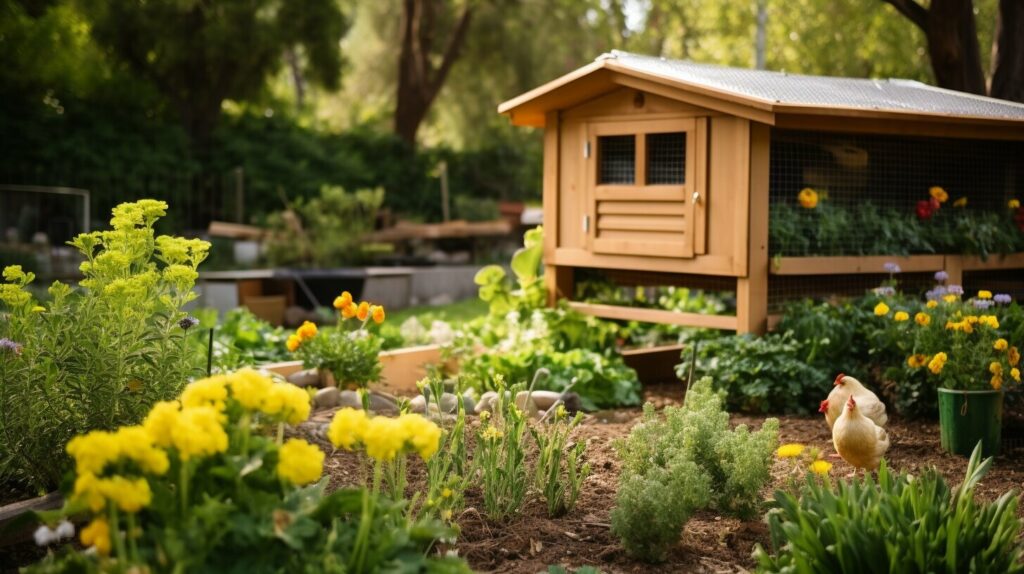
Feeding and Nutrition for Backyard Quail
Proper nutrition is key to keeping your backyard quail healthy and happy. Quail have specific dietary requirements that differ from chickens, so it’s important to provide them with the right feed and supplements.
Quail require a diet that is high in protein, around 22-24%. You can find commercial quail feed at your local farm supply store or online. Look for feed that is specifically formulated for quail and contains plenty of protein and essential nutrients.
In addition to quail feed, you can supplement your quail’s diet with fresh fruits and vegetables. They also enjoy small insects and worms, so consider offering mealworms for an occasional treat.
It’s important to provide your quail with access to clean, fresh water at all times. Quail are sensitive to dirty water and can easily become ill if they are drinking contaminated water.
Finally, consider adding a calcium supplement to your quail’s diet. Quail require calcium for strong eggshells, and a lack of calcium can lead to soft shells or other health problems. Crushed oyster shells or eggshells are both excellent sources of calcium for quail.
To sum up, providing your backyard quail with a balanced, high-protein diet and clean water is essential for their health and well-being. Supplementing their diet with fresh fruits and vegetables and calcium supplements can also help ensure that your quail produce healthy eggs.
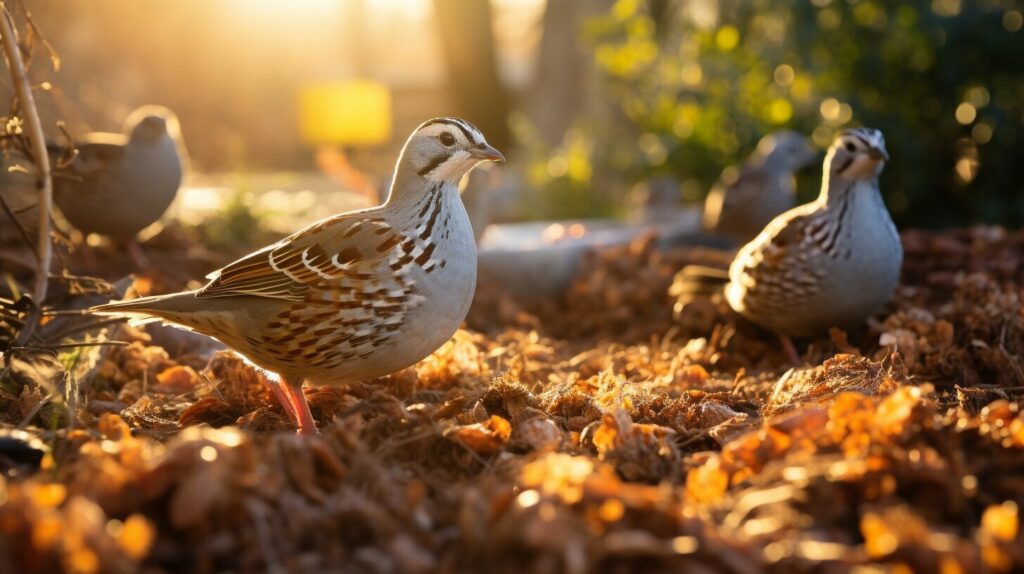
Remember: a healthy diet is central to keeping your quail happy and productive!
Health and Disease Management for Backyard Quail
As a backyard quail owner, maintaining the health of your flock should be a top priority. By implementing preventive measures and proper care practices, you can help keep your quail happy and disease-free.
To ensure your backyard quail remain healthy, it is important to provide them with a clean living environment. Regularly cleaning their coop and replacing bedding will help reduce the risk of infection. Additionally, keeping their feed and water sources clean and free of debris is crucial in preventing the spread of disease.
It is also important to monitor your quail for any signs of illness or injury. Common health issues in quail include egg binding, respiratory infections, and parasites. If you notice any unusual behavior or symptoms, such as lethargy or labored breathing, it is important to seek veterinary care immediately.
Preventing access to predators is another key factor in maintaining your backyard quail’s health. Many animals, including raccoons and snakes, can pose a threat to quail. Make sure to secure their coop with sturdy locks and wire mesh to prevent unwanted visitors.
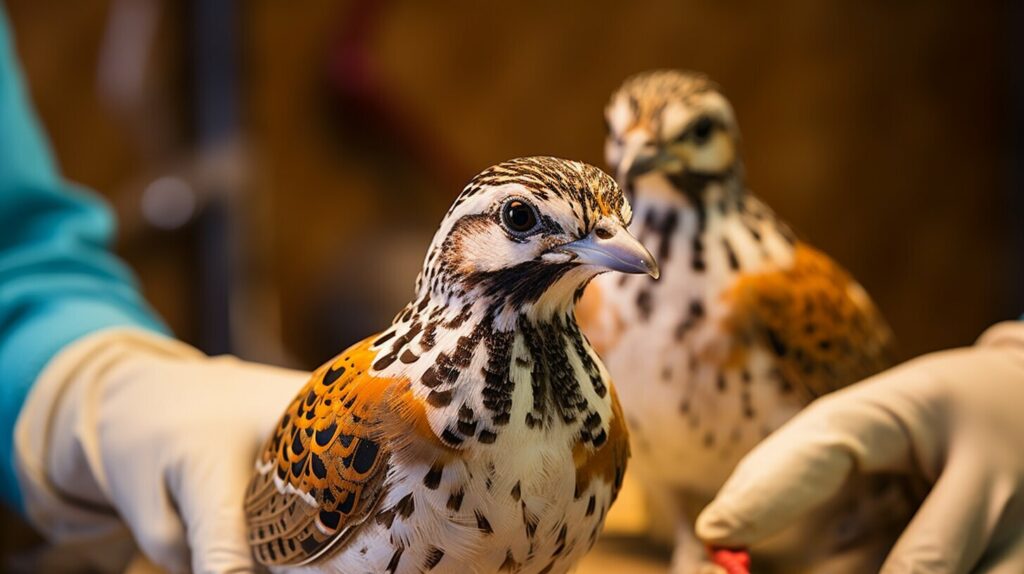
By following these simple tips and providing proper care for your backyard quail, you can help ensure their health and well-being. Remember, healthy quail are happy quail!
Benefits of Raising Backyard Quail
If you’re considering backyard quail as an alternative to chickens, you’re in for a treat! Quail can be a fun and rewarding addition to your backyard farm or homestead. Here are some benefits of choosing quail over chickens:
- Space requirements: Quail require much less space than chickens, and can even be kept in a small urban backyard!
- Egg production: Quail produce small but delicious eggs that are packed with nutrients. They also begin laying eggs at a younger age than chickens, so you’ll have a steady supply of eggs throughout the year.
- Sustainability: Raising backyard quail is a more sustainable option compared to factory-farmed eggs. You’ll know exactly where your eggs are coming from and how your quail are being treated.
Not only are quail great for egg production and space-saving, they also provide a lot of entertainment and joy as pets. They are known for their cute and curious personalities, and can even be trained to eat out of your hand!
Overall, raising backyard quail can be a fantastic alternative to raising chickens. With their small size, ease of care, and numerous benefits, quail are a great addition to any backyard farm or homestead.
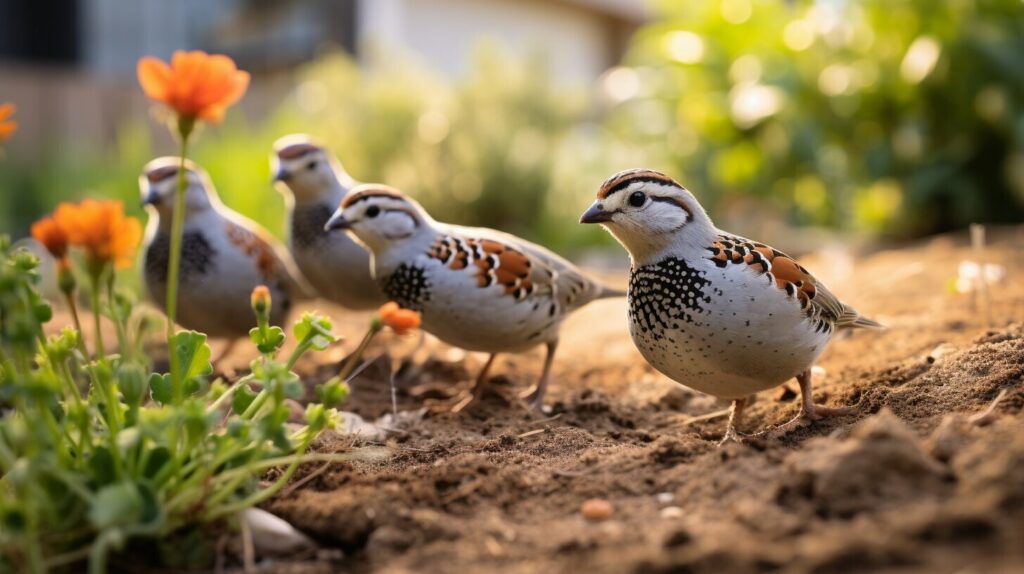
Tips for Successful Backyard Quail Raising
If you’re considering raising backyard quail, it’s important to keep a few things in mind to ensure your quail thrive in their new environment. Here are some tips to help you successfully raise and care for your quail:
- Handle your quail regularly: Regular handling of your quail will help keep them used to human interaction and make them easier to manage.
- Provide predator protection: Quail are vulnerable to predators, so it’s important to ensure they are housed in a safe and secure environment. Use wire mesh or netting to cover their coop and run, and consider installing an electric fence.
- Maximize egg production: To get the most out of your quail, ensure they have access to a high-protein feed and provide them with a clean, stress-free environment. Consider using artificial lighting to extend the number of daylight hours and encourage egg production.
- Give them plenty of space: Quail need room to move around and exercise. Provide at least 1 square foot of space per quail in their coop and 2-3 square feet of space per quail in their run or outdoor area.
- Ensure proper nutrition: Quail require a balanced diet of protein, vitamins, and minerals. Consider providing them with a game bird feed, and supplement their diet with fresh greens, fruits, and grains.
- Maintain a clean environment: Keeping your quail’s living area clean is essential for their health and well-being. Change their bedding regularly, and keep their food and water sources clean and free of debris.
By following these tips, you can ensure that your backyard quail are happy, healthy, and productive members of your homestead. Remember, raising quail can be a fun and rewarding experience, but it does require some care and attention on your part.
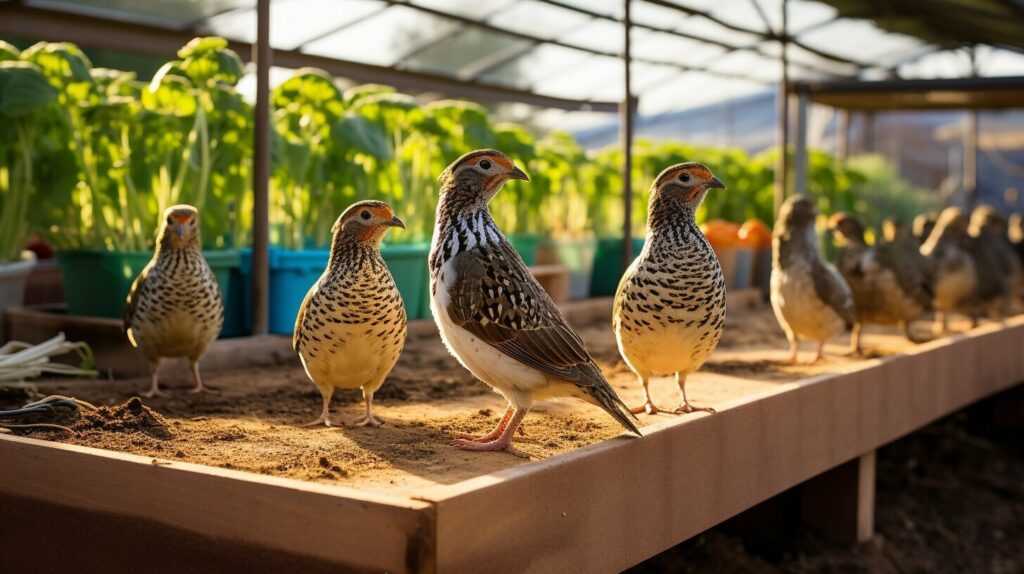
Quail as Backyard Pets
Did you know that quail can also make great pets? While they might not be as cuddly as a cat or a dog, they can still provide entertainment and joy in your backyard.
One of the benefits of quail as pets is their size. They are small and can easily be housed in a backyard coop without taking up too much space. Additionally, quail are social animals and enjoy being around other quail, so having a small flock can be a fun and interactive experience.
Another great thing about quail is their curious and active nature. They love to explore their surroundings and are always on the move. This can be fun to watch and can provide entertainment for both you and your family.
While quail may not be as affectionate as other pets, they are still enjoyable to be around. They have unique personalities and behaviors that make them interesting to observe and interact with.
So, if you’re looking for a unique and low-maintenance pet to add to your backyard, consider quail. They can be just as rewarding as any other pet, and you’ll have the added bonus of fresh eggs!
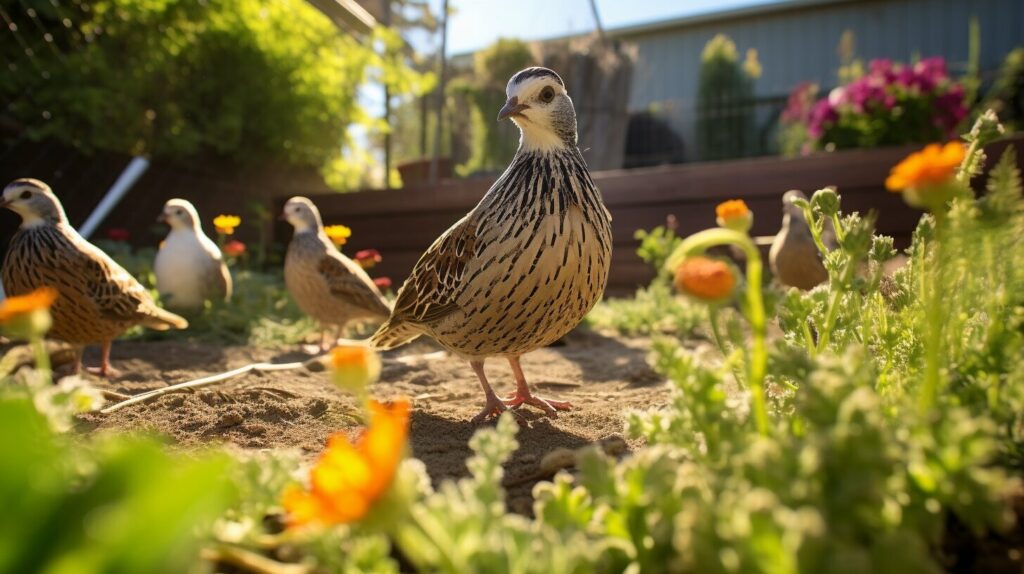
Conclusion
You’ve learned all about the benefits of raising backyard quail. Quail are a wonderful alternative to traditional backyard chickens and can offer a variety of advantages in terms of space requirements, egg production, and sustainability.
By now, you should have a good understanding of what it takes to successfully raise quail in your backyard. From setting up the right coop and housing, to feeding and nutrition, and even dealing with potential health issues and predators – you’re ready to take on the challenge of backyard quail raising.
Remember to start small and gradually build your flock as you gain experience. Don’t forget to enjoy the process and the rewards that come with raising these fascinating and entertaining birds.
So go ahead, give backyard quail raising a try and enjoy the wonderful benefits that these charming birds have to offer.
FAQ
Q: Can backyard quail be kept with other animals?
A: Backyard quail can be kept with other animals, such as chickens or rabbits, as long as they have separate housing to prevent any potential conflicts or diseases.
Q: How much space do backyard quail need?
A: Backyard quail require about 1 square foot of space per bird in their coop, and they also benefit from having access to a secure outdoor area for foraging and exercise.
Q: How often do quail lay eggs?
A: Quail are prolific layers and can lay an average of 300 eggs per year. They typically start laying at around 8-10 weeks of age and continue throughout their productive lifespan.
Q: Do backyard quail require special feed?
A: Backyard quail have specific nutritional needs and should be provided with a balanced quail feed that contains the necessary vitamins, minerals, and protein for their optimal health and egg production.
Q: How do you prevent diseases in backyard quail?
A: To prevent diseases in backyard quail, it is important to practice good hygiene, provide clean bedding and water, avoid overcrowding, and regularly inspect and treat for parasites. Quarantining new birds before introducing them to the flock is also recommended.
Q: Can quail be kept as indoor pets?
A: Quail are primarily outdoor birds and require access to a suitable outdoor environment for their natural behaviors. While they can be kept indoors temporarily for brooding or other specific needs, it is best to provide them with an outdoor space for their overall well-being.
Q: Can backyard quail fly?
A: Quail have limited flight capabilities and are generally known for their ability to take short and low flights. However, they are not strong flyers and are unlikely to fly over fences or escape from a properly enclosed area.
Q: Are backyard quail noisy?
A: Backyard quail are relatively quiet birds compared to chickens or other poultry. They produce soft vocalizations, such as soft clucking or chirping sounds, which are generally not disruptive or bothersome.
Q: Can backyard quail be kept in urban areas?
A: Backyard quail can be kept in urban areas as long as local regulations allow for poultry keeping. However, it is important to consider the noise and odor factors, as well as the space limitations and potential conflicts with neighbors.

